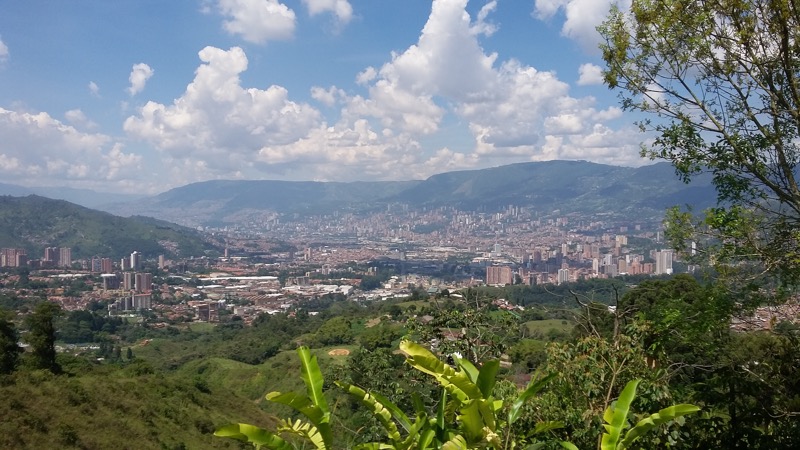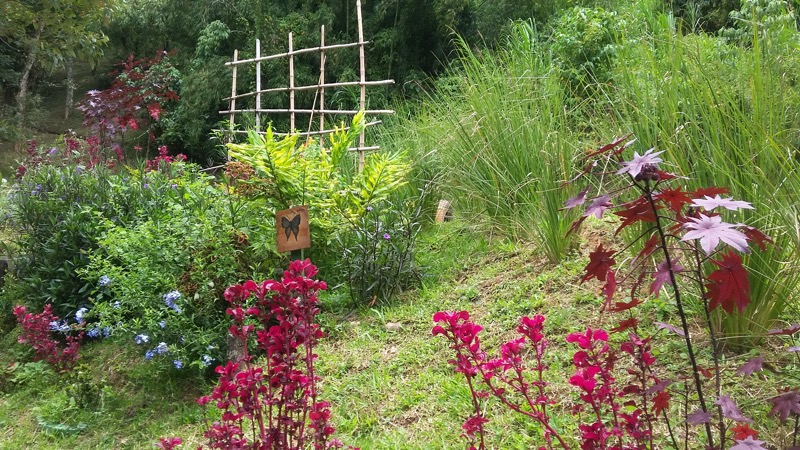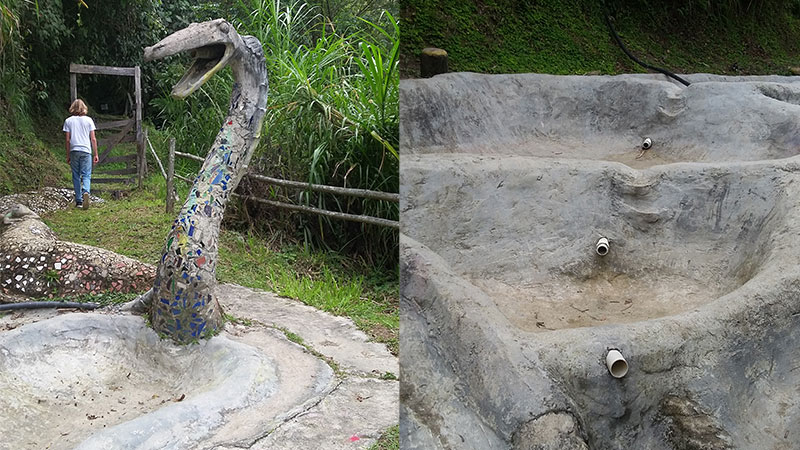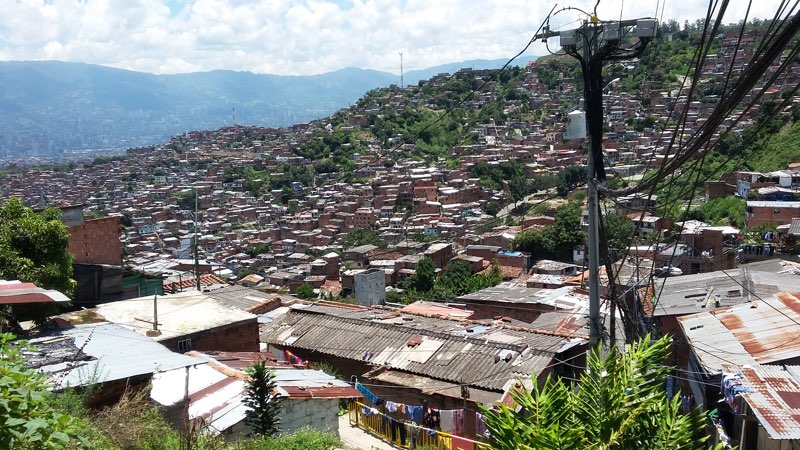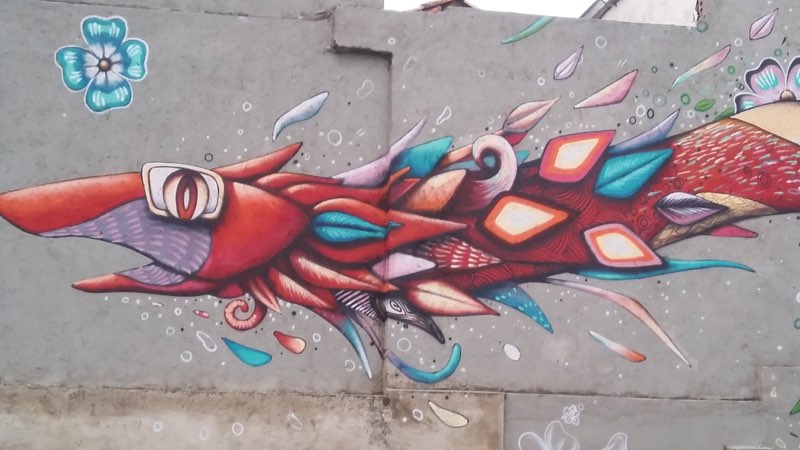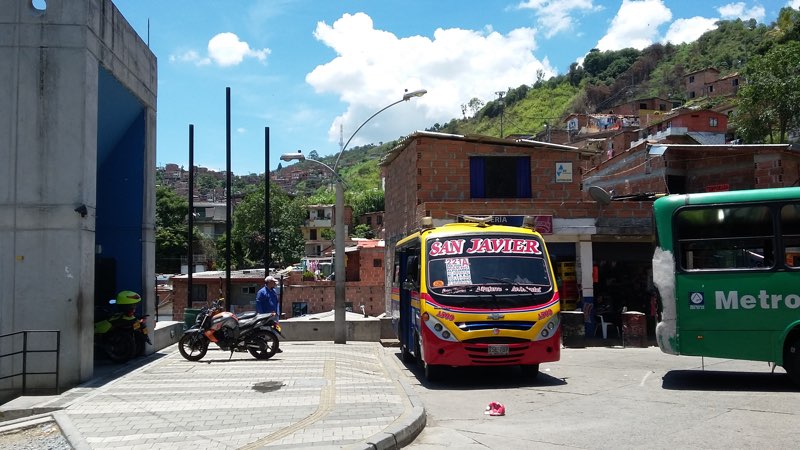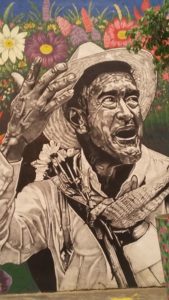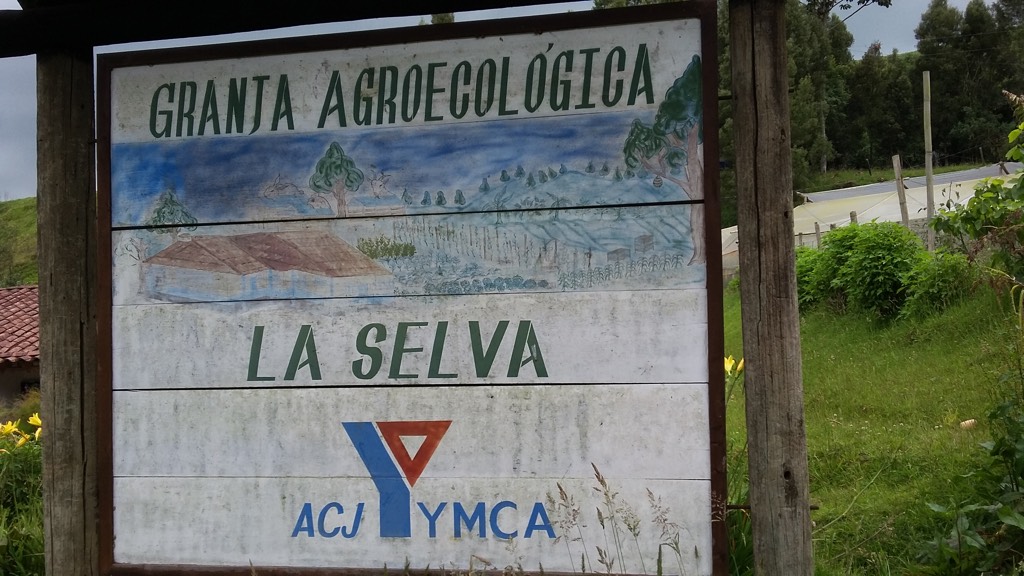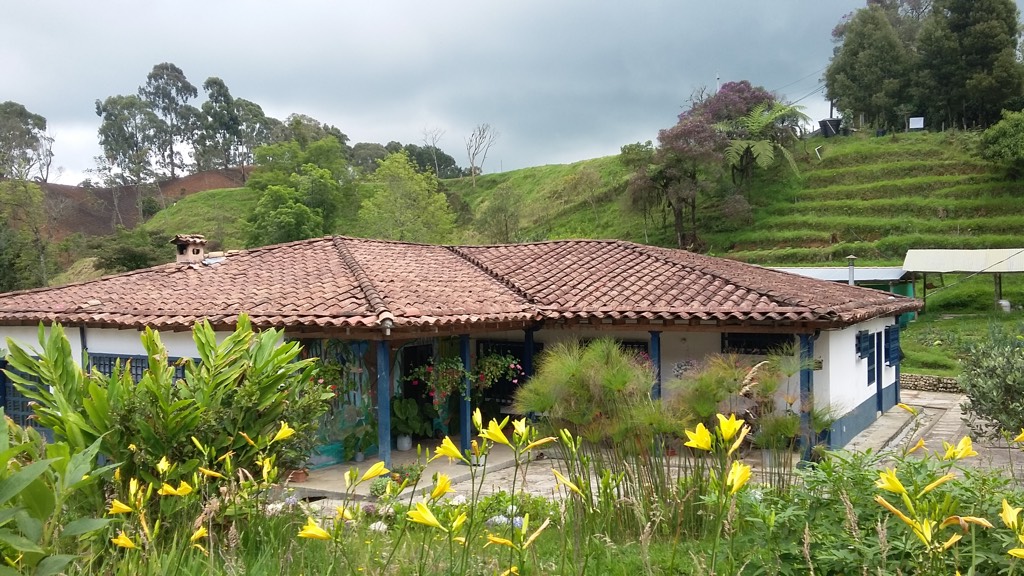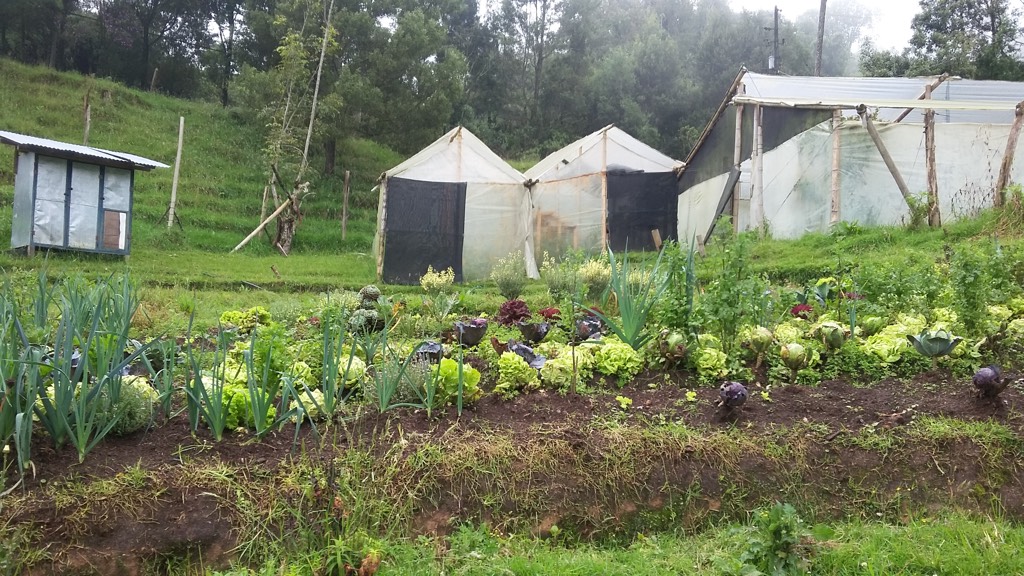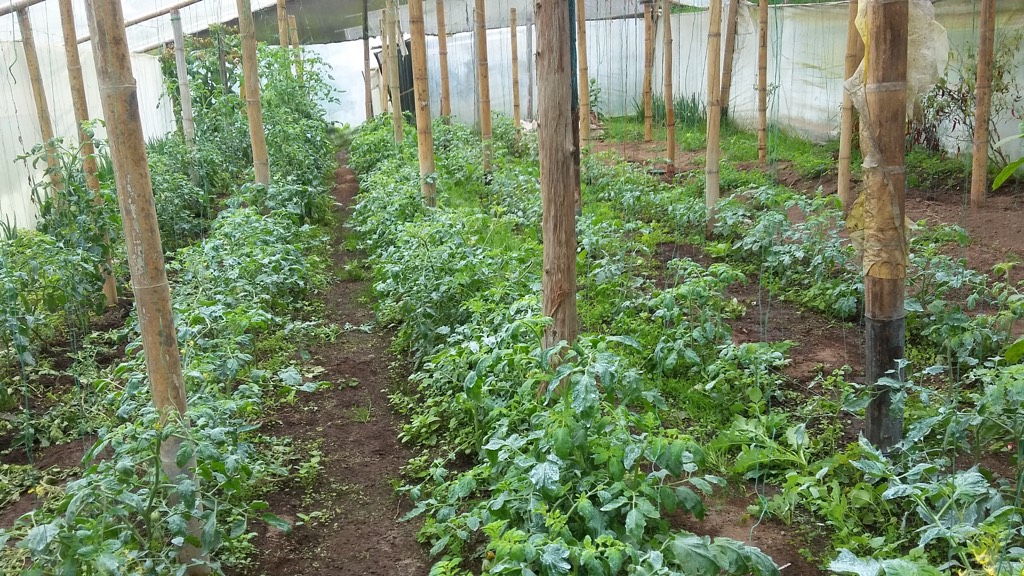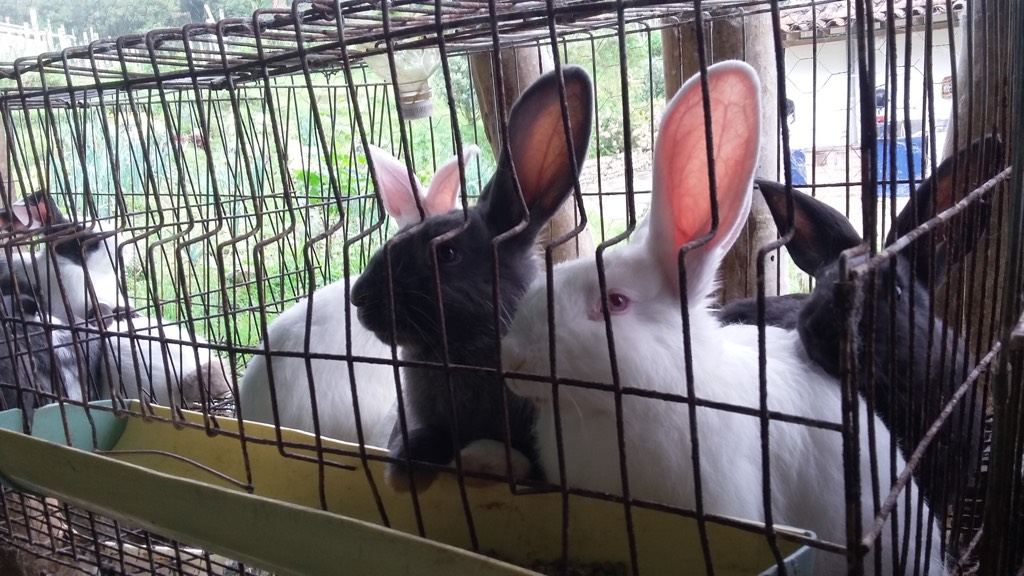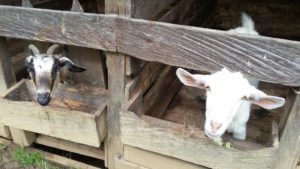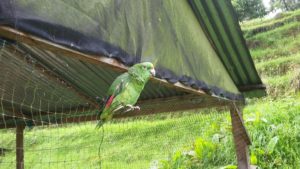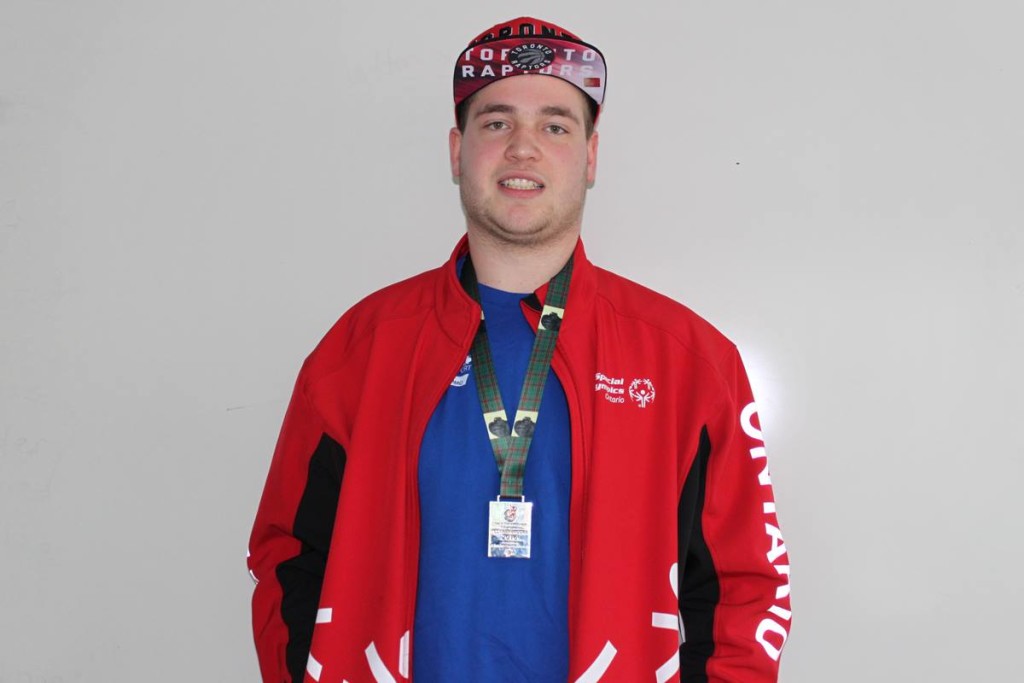Last Tuesday and Wednesday (March 28 & 29), I was immersed in the Soleira school, which is a private school in Medellin, for two days. I was kindly welcomed by Paula, an English teacher, into 5 of her classes — which quickly turned into a cultural exchange. There seemed to be no topic that was off the table. We talked about school systems, weather, politics, transgender issues, same sex marriage, prostitution, drugs, to name a few. The senior classes’ ability to speak and listen in English was exceptional. There is no doubt in my mind that they are receiving an exceptional education in the areas of language and social issues.
The school itself is beautiful. It is nestled on the side of a mountain and the property stretches out forever. There is a path that circles the property that is used by “the best teachers” according to the two senior students that took me and Francisco (my friend, interpreter and former staff and volunteer with the YMCA). They told me of their philosophy teacher who, after teaching them, will take them to contemplate what they have learned. There are gardens, natural forested areas, statues, and a manmade pool system for the young children to play in.
The school gets its water from the runoff from the mountain, so after a heavy rain late last week, the pipes were overwhelmed and needed to be fixed. We had no running water for one day, but it was easily fixed and fully functional the next day.
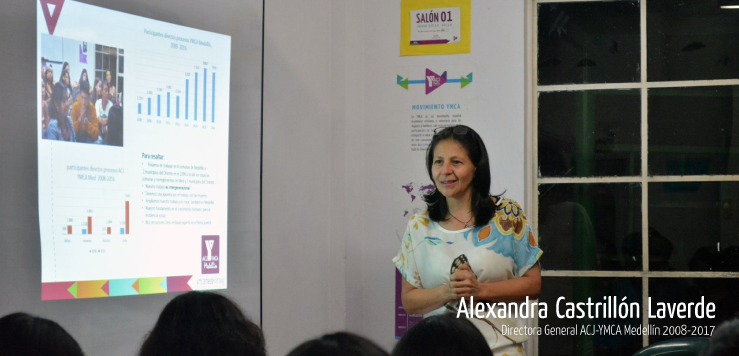
Tuesday night was the farewell ceremony for Alexandra Castrillon (now former Director of the YMCA) and the welcome to Carlos Augusto (new Director). This was both a joyous and sad occasion. Alexandra spoke to each staff member publicly and told everyone what she valued in them and then each staff member shared with Carlos about themselves and welcomed him into his new position. It was an emotional time for all and I was honored to represent the YMCA of Greater Toronto.
On Friday night I participated in a conversation club at the YMCA. The devotion of the club to come out to practice their speaking and listening skills was inspiring. There were some beginners and some quite accomplished youths and adults. Some loved English and others openly told me they hated it, yet there they were practicing it anyways on a Friday night.
Saturday was a busy day as I started the day again participating in a YMCA English group. This time it was with 7-10 year old children. They made me welcome signs, we sang “Head and Shoulders, Knees and Toes” and I taught them the song “There was a farmer had a dog and Bingo was his name-o!” I also had an opportunity to briefly chat with the parents of these children, who were meeting in another room, to learn about the brain development associated with learning a second language. I thought that these two programs running simultaneously at the YMCA was a great idea. Although most of the parents knew little English, they wanted to give their children encouragement and the hope for greater opportunities that learning English would give them as Medellin works towards becoming a multilingual community.
I was quickly whisked away from the YMCA to visit one of the YMCA’s university prep classes. Although the class was almost over, I had the opportunity to try out one of the questions and I got it right!!! This was a relief because I wasn’t 100% confident in my answer as it was being translated to me.
That is all for now.

